Home>Articles>When Was The Electric Pressure Cooker Invented
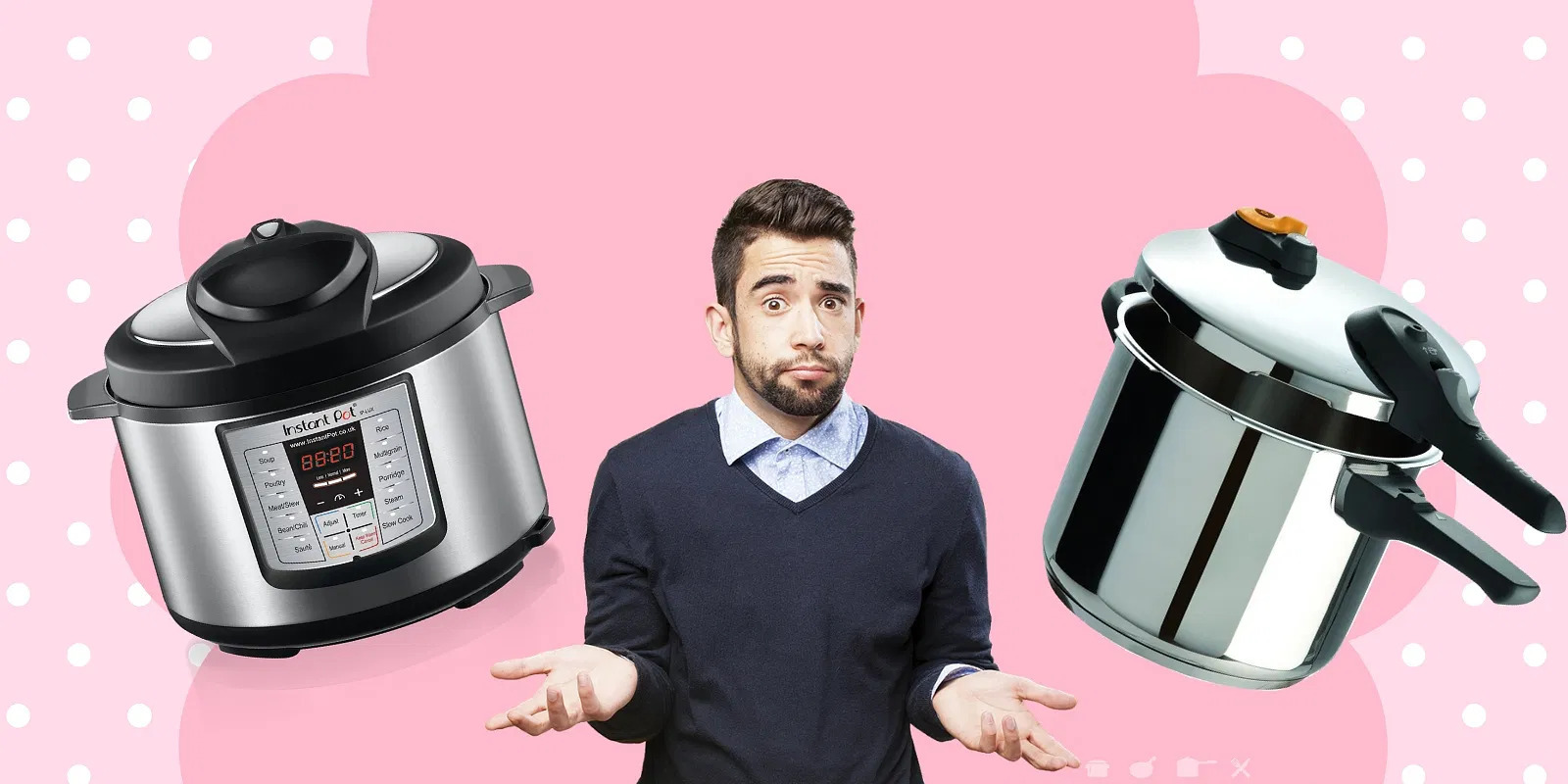

Articles
When Was The Electric Pressure Cooker Invented
Modified: October 20, 2024
Discover the fascinating history of the electric pressure cooker, from its invention to its modern-day popularity. Read articles on the revolutionary cooking appliance.
(Many of the links in this article redirect to a specific reviewed product. Your purchase of these products through affiliate links helps to generate commission for Storables.com, at no extra cost. Learn more)
When Was The Electric Pressure Cooker Invented
Pressure cookers have revolutionized the way we cook, allowing us to prepare meals quicker and more efficiently than ever before. But when did the electric pressure cooker make its debut? Let’s delve into the history of this innovative kitchen appliance.
Pressure cookers have been around for centuries, with the first patent for a pressure cooker being filed in 1679 by a French physicist named Denis Papin. However, these early pressure cookers were stovetop models that relied on steam pressure to cook food quickly.
It wasn’t until the late 20th century that electric pressure cookers emerged on the market. In 1991, the first electric pressure cooker was introduced, offering a convenient and user-friendly alternative to traditional stovetop models.
The early electric pressure cookers had a simple design, consisting of a sealed pot with a built-in heating element and a control panel. This allowed users to set the desired cooking time and pressure level. As technology advanced, electric pressure cookers started to incorporate more features such as multiple pressure settings, delayed start timers, and programmable cooking functions.
One significant milestone in electric pressure cooker history was the introduction of the Instant Pot in 2010. This versatile multicooker gained immense popularity due to its ability to function as a pressure cooker, slow cooker, rice cooker, yogurt maker, and more. The Instant Pot sparked a renewed interest in electric pressure cookers and has since become a household name.
The introduction of electric pressure cookers revolutionized the cooking industry. They offered a safer alternative to stovetop models, as there was no need to manually release steam, and the cooking process was automated. Additionally, electric pressure cookers provided a more consistent cooking experience with precise temperature and pressure control.
Today, electric pressure cookers continue to evolve and improve. Modern models feature enhanced safety mechanisms, larger cooking capacities, and smart functionality that allows remote control and monitoring through smartphone apps. Electric pressure cookers have become an essential tool in many kitchens, offering convenience, speed, and versatility.
So, when was the electric pressure cooker invented? While the concept of pressurized cooking has been around for centuries, the first electric pressure cooker as we know it today was introduced in 1991. Since then, electric pressure cookers have come a long way, making cooking faster and more convenient for countless households around the world.
Key Takeaways:
- The electric pressure cooker was first invented in 1991, revolutionizing the cooking industry with its convenience, safety, and versatility, making meal preparation faster and more efficient for households worldwide.
- Electric pressure cookers offer faster cooking times, energy efficiency, nutrient retention, convenience, and versatility, making them a beloved kitchen appliance that continues to transform the way we cook.
Read more: When Was The Electric Kettle Invented
Introduction: Definition of an Electric Pressure Cooker
An electric pressure cooker is a kitchen appliance that combines the benefits of pressure cooking with the convenience of electricity. It is a sealed pot with a built-in heating element and a control panel that allows for automated pressure cooking.
Pressure cookers, in general, have been widely used for decades due to their ability to cook food quickly and efficiently under high pressure. They work by trapping steam inside the sealed pot, which raises the internal temperature, resulting in faster cooking times compared to traditional cooking methods.
The popularity of pressure cookers can be attributed to their versatility and time-saving features. Not only do they speed up the cooking process, but they also retain the natural flavors, colors, and nutrients of the food being prepared. This makes pressure cookers an ideal choice for those looking to cook healthy and nutritious meals.
Electric pressure cookers, in particular, have gained widespread popularity in recent years. They offer the same benefits as traditional stovetop pressure cookers, but with added convenience. Unlike stovetop models, electric pressure cookers do not require constant monitoring or adjustment of heat sources. They have programmable features that allow users to set the desired cooking time and pressure level, and they automatically regulate temperature and pressure throughout the cooking process.
Electric pressure cookers have become a favorite among busy individuals and families, as they streamline the cooking process and save valuable time in the kitchen. They are capable of cooking a wide range of dishes, from hearty stews and soups to tender meats and flavorful rice. Some models even offer specialized cooking functions for specific dishes, such as yogurt making or slow cooking.
In addition to their time-saving capabilities, electric pressure cookers are also energy-efficient. The sealed pot and efficient heat distribution minimize heat loss, resulting in quicker cooking times and reduced energy consumption.
The functionality and convenience of electric pressure cookers have made them an essential tool for home cooks of all skill levels. Whether you’re a beginner looking to simplify meal preparation or an experienced chef seeking efficiency in the kitchen, an electric pressure cooker can be a valuable addition to your culinary repertoire.
In summary, an electric pressure cooker is a kitchen appliance that combines the benefits of pressure cooking with the convenience of electricity. It allows for quick and efficient cooking, while retaining the natural flavors and nutrients of the food. The popularity of electric pressure cookers can be attributed to their versatility, time-saving features, and energy efficiency. Let’s delve into the history and advancements of electric pressure cookers to gain a deeper understanding of their impact on modern cooking practices.
Early History of Pressure Cookers
The invention and evolution of pressure cookers have a rich history that dates back centuries. Let’s explore the early milestones and advancements in pressure cooker technology.
The first pressure cooker, as we recognize it today, was invented by a French physicist named Denis Papin in 1679. Papin’s invention, known as the “steam digester,” was a sealed vessel that used steam pressure to cook food rapidly. The steam digester allowed for faster cooking times and tenderized tough cuts of meat, making it a valuable tool in the kitchen.
Over the years, stovetop pressure cookers gained popularity among home cooks and professional chefs alike. The basic design of a stovetop pressure cooker includes a pot or pan with a tightly sealed lid that locks in steam. As the liquid inside reaches boiling point, steam builds up pressure, raising the internal temperature and reducing cooking times significantly.
Advancements in pressure cooker technologies led to the incorporation of safety features to prevent accidents caused by excessive pressure build-up. The development of pressure release valves and pressure indicators allowed for safer and more controlled pressure cooking experiences. This made pressure cookers more widely accepted and recognized as a practical and efficient cooking method.
In the mid-20th century, pressure cookers became a staple in many households, particularly during times when convenience and efficiency were valued. They were known for their ability to cook meals quickly and economically, making them a popular choice for busy families and individuals.
The introduction of aluminum pressure cookers in the 1930s further enhanced the popularity of pressure cooking. Aluminum’s excellent heat conductivity and lightweight properties made it an ideal material for pressure cooker construction. It resulted in faster and more even heat distribution, contributing to improved cooking performance.
In recent years, pressure cooker technologies have continued to evolve. Manufacturers have developed innovative features such as programmable timers, digital controls, and multiple cooking modes. These advancements have made pressure cookers even more user-friendly and adaptable to different cooking preferences.
In summary, the early history of pressure cookers begins with the invention of the steam digester by Denis Papin in 1679. This laid the foundation for the development and popularity of stovetop pressure cookers, which offered faster cooking times and tenderized tough cuts of meat. Advancements in pressure cooker technologies, such as safety features and the use of aluminum, further improved their functionality and efficiency. These early milestones set the stage for the emergence of electric pressure cookers, which we will explore in the subsequent sections.
Emergence of Electric Pressure Cookers
With the advancement of technology, electric pressure cookers emerged as a convenient and user-friendly alternative to stovetop models. Let’s explore the timeline of the introduction and evolution of electric pressure cookers, as well as their impact on the cooking industry.
The first electric pressure cooker was introduced in 1991, marking a significant milestone in the world of pressure cooking. This innovative kitchen appliance combined the benefits of traditional pressure cooking with the convenience of electricity. It featured a sealed pot with a built-in heating element and a control panel that allowed for automated pressure cooking.
Early electric pressure cookers had a straightforward design and functionality. Users could set the desired cooking time and pressure level, and the electric cooker would regulate temperature and pressure accordingly. This eliminated the need for constant monitoring and manual adjustment of heat sources, making it much easier for home cooks to prepare meals.
As technology progressed, electric pressure cookers underwent various design advancements. Manufacturers introduced models with programmable features, such as delayed start timers and customizable cooking modes. These added functionalities made electric pressure cookers even more versatile and adaptable to different cooking requirements.
One of the key advantages of electric pressure cookers is their user-friendly interface. The control panel allows for easy adjustment of settings and precise monitoring of cooking progress. In addition, electric pressure cookers often come with built-in safety mechanisms, such as pressure release valves and locking systems, ensuring a safe cooking experience for users.
Electric pressure cookers quickly gained popularity among home cooks due to their ease of use and time-saving capabilities. They provided a more convenient and consistent cooking experience compared to traditional stovetop pressure cookers, which required manual regulation of heat sources and pressure release.
The impact of electric pressure cookers on the cooking industry has been substantial. They have not only simplified the cooking process for individuals and families but also opened up new possibilities in the culinary world. As electric pressure cookers gained in popularity, manufacturers started to develop recipe books, online communities, and smartphone apps tailored specifically for electric pressure cooker users. These resources enable home cooks to explore a wide range of recipes and cooking techniques, further expanding their culinary repertoire.
In summary, the emergence of electric pressure cookers in 1991 revolutionized the pressure cooking landscape. Their introduction brought convenience and automation to pressure cooking, making it easier and more accessible for home cooks. The evolution of electric pressure cooker designs and features, including programmable settings and built-in safety mechanisms, further enhanced their functionality and popularity. Electric pressure cookers have had a significant impact on the cooking industry, offering time-saving capabilities and expanding the culinary possibilities for home cooks around the world.
The electric pressure cooker was invented in 1991 by a company called Nippon Electric Company (NEC) in Japan. It was initially designed for commercial use but later became popular for home cooking.
Notable Milestones in Electric Pressure Cooker Inventions
The development of electric pressure cookers has seen several notable milestones, with pioneering brands and models shaping the advancements in this innovative kitchen appliance. Let’s explore some of the key milestones and innovations in electric pressure cooker technology.
1. Instant Pot: One of the most influential brands in the electric pressure cooker market is Instant Pot. The Instant Pot gained immense popularity with its multifunctionality, offering pressure cooking, slow cooking, rice cooking, yogurt making, and more in a single appliance. The Instant Pot revolutionized the way people cook by providing a versatile and user-friendly cooking experience.
2. Ninja Foodi: Another notable brand in electric pressure cookers is Ninja. The Ninja Foodi combines the functions of a pressure cooker, air fryer, and slow cooker in one appliance. This integration of multiple cooking methods into a single device has attracted many home cooks looking to save space in their kitchens and simplify their cooking processes.
3. Programmable Features: One significant advancement in electric pressure cooker technology is the introduction of programmable features. Early electric pressure cookers had basic controls for adjusting cooking time and pressure level. However, as technology evolved, manufacturers developed models with programmable timers, delayed start functions, and sophisticated cooking modes. These features allow users to customize their cooking experience and set precise parameters for different recipes.
4. Smart Functionality: With the rise of smart home technology, electric pressure cookers have followed suit. Some modern electric pressure cookers offer smart functionality, allowing users to control and monitor the cooking process remotely through smartphone apps. This innovation provides added convenience and flexibility for busy individuals who want to prepare meals on the go.
5. Enhanced Safety Mechanisms: Safety has always been a priority in pressure cooking. Over the years, electric pressure cookers have incorporated advanced safety mechanisms to ensure a secure cooking experience. Features like pressure release valves, lid-locking systems, and automatic pressure regulation help prevent accidents caused by excessive pressure build-up and ensure the safe operation of the appliance.
6. Increased Cooking Capacities: Another milestone in electric pressure cooker inventions is the development of models with larger cooking capacities. Many electric pressure cookers now offer larger pot sizes, allowing users to prepare meals for larger families or gatherings. This expansion in cooking capacities has broadened the possibilities for cooking a variety of dishes in electric pressure cookers.
7. Energy Efficiency: While stovetop pressure cookers are already considered more energy-efficient than traditional cooking methods, electric pressure cookers have taken energy efficiency to the next level. The sealed pot and efficient heat distribution in electric models minimize heat loss and reduce cooking times, resulting in energy savings and lower utility bills.
These notable milestones and advancements in electric pressure cooker technology have greatly enhanced the cooking experience for users. Pioneering brands and models have introduced innovative features, expanded cooking capacities, and improved safety measures, making electric pressure cookers a versatile and indispensable tool in modern kitchens.
Read more: When Was The Electric Toothbrush Invented
Benefits and Advantages of Electric Pressure Cookers
Electric pressure cookers offer numerous benefits and advantages that have made them a popular choice for home cooks. Let’s explore some of the key benefits and why electric pressure cookers have become an essential tool in many kitchens.
1. Faster Cooking Times and Energy Efficiency: One of the primary advantages of electric pressure cookers is their ability to cook food faster than traditional cooking methods. The high-pressure environment inside the sealed pot significantly reduces cooking times, making it ideal for busy individuals and families. Additionally, electric pressure cookers are energy-efficient. The sealed pot and efficient heat distribution minimize heat loss, resulting in reduced cooking times and lower energy consumption compared to stovetop cooking methods.
2. Retention of Nutrients and Flavors in Food: Electric pressure cookers excel at retaining the nutrients and flavors of food. The high-pressure environment helps to lock in essential vitamins and minerals that can be lost in other cooking methods, such as boiling or steaming. The sealed pot also traps steam, which prevents the escape of flavorful aromas and ensures that the food remains moist and succulent.
3. Convenience and Ease of Use: Electric pressure cookers are designed with convenience in mind. They offer user-friendly interfaces with buttons and digital displays for adjusting settings and monitoring cooking progress. Electric models also have programmable features that allow for precise customization of cooking times and pressure levels. Once the desired settings are selected, the electric pressure cooker does the rest, automatically regulating temperature and pressure for worry-free cooking. This convenience makes electric pressure cookers suitable for all levels of cooking expertise.
4. Versatility in Cooking: Electric pressure cookers are versatile appliances that can handle a wide range of recipes and ingredients. From stews and soups to rice, beans, and even desserts, electric pressure cookers can tackle a variety of dishes. Some models offer additional cooking functions, such as sautéing, slow cooking, and yogurt making, expanding the cooking possibilities even further. The versatility of electric pressure cookers allows home cooks to experiment with different recipes and easily adapt to various culinary preferences.
5. Healthier Cooking Options: Electric pressure cookers promote healthier cooking methods. The shorter cooking times and the ability to retain nutrients and flavors mean that less oil or fat is required to enhance the taste of the dishes. Additionally, the sealed pot prevents the need for excessive water or broth, ensuring that the natural flavors of the ingredients are intensified without dilution. This makes electric pressure cookers an excellent choice for individuals seeking to reduce their fat intake or those following specific dietary restrictions.
Overall, electric pressure cookers offer a range of benefits and advantages that have made them increasingly popular in modern kitchens. Faster cooking times, energy efficiency, retention of nutrients and flavors, convenience, versatility, and healthier cooking options are just a few of the reasons why electric pressure cookers have become a go-to appliance for many home cooks.
Conclusion
In conclusion, the invention and evolution of electric pressure cookers have brought significant advancements to the world of pressure cooking. From their inception to the present day, electric pressure cookers have revolutionized the cooking experience for home cooks.
The invention of electric pressure cookers in 1991 marked a milestone in the kitchen appliance industry. These appliances combined the benefits of traditional pressure cooking with the convenience of electricity. They introduced programmable features, enhanced safety mechanisms, and user-friendly interfaces, making pressure cooking more accessible and enjoyable for people of all skill levels.
Electric pressure cookers have made a substantial impact on modern cooking practices. Firstly, they have greatly improved the efficiency of cooking by reducing cooking times and energy consumption. The sealed pot and efficient heat distribution allow for faster, more economical cooking, saving time and resources in the kitchen.
Furthermore, electric pressure cookers have been crucial in preserving the nutrients and flavors of food. The high-pressure environment and sealed pot help to lock in essential vitamins and minerals, ensuring that meals prepared in electric pressure cookers are both nutritious and delicious. This is particularly important in today’s health-conscious society, where people strive to maintain a balanced and wholesome diet.
The convenience and ease of use provided by electric pressure cookers cannot be overstated. With programmable features and automatic control, home cooks can confidently prepare meals without the need for constant monitoring or manual adjustments. This convenience has made electric pressure cookers a time-saving tool for busy individuals, allowing them to cook meals efficiently and effortlessly.
Electric pressure cookers have also expanded the possibilities in the kitchen. Their versatility in cooking a wide range of dishes, from soups and stews to desserts and yogurt, has made them an indispensable appliance for aspiring cooks and seasoned chefs alike. Electric pressure cookers have opened up new horizons for culinary creativity, allowing home cooks to explore diverse recipes and cooking techniques.
All in all, the invention and evolution of electric pressure cookers have had a profound impact on modern cooking practices. Their efficiency, nutrient retention, convenience, versatility, and impact on meal preparation have made them a beloved kitchen appliance. Electric pressure cookers continue to transform the way we cook, making meals healthier, tastier, and more time-efficient.
Frequently Asked Questions about When Was The Electric Pressure Cooker Invented
Was this page helpful?
At Storables.com, we guarantee accurate and reliable information. Our content, validated by Expert Board Contributors, is crafted following stringent Editorial Policies. We're committed to providing you with well-researched, expert-backed insights for all your informational needs.
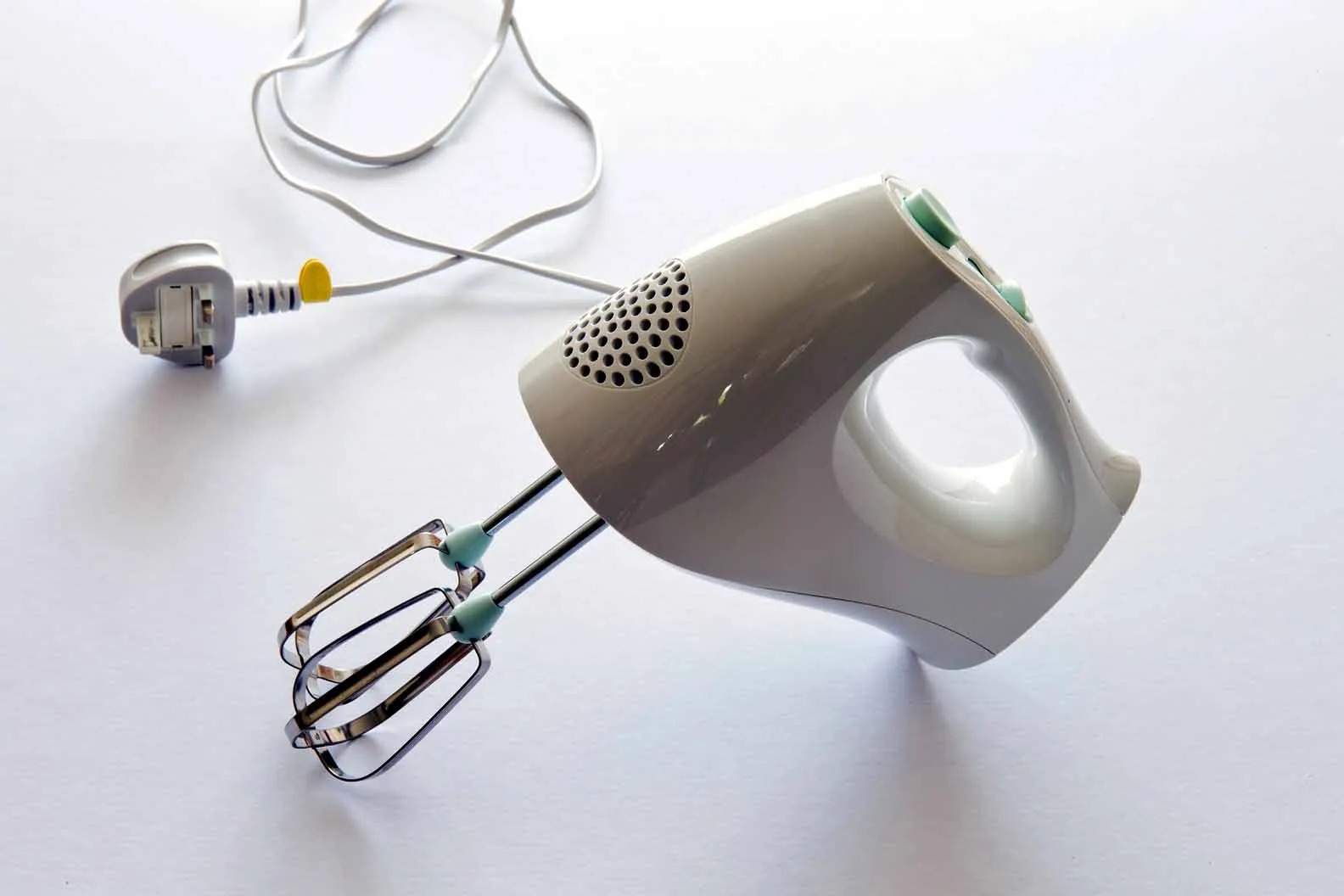
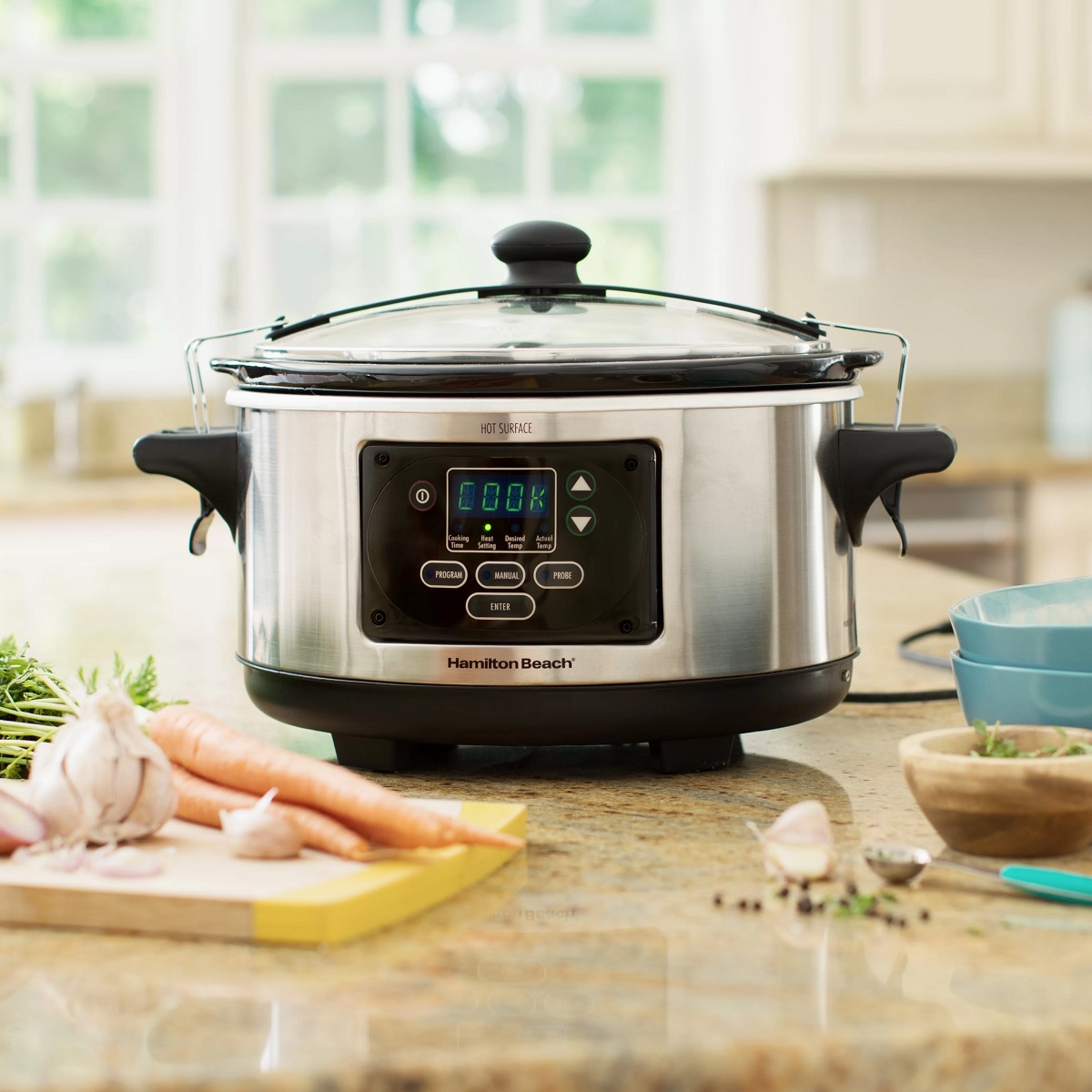
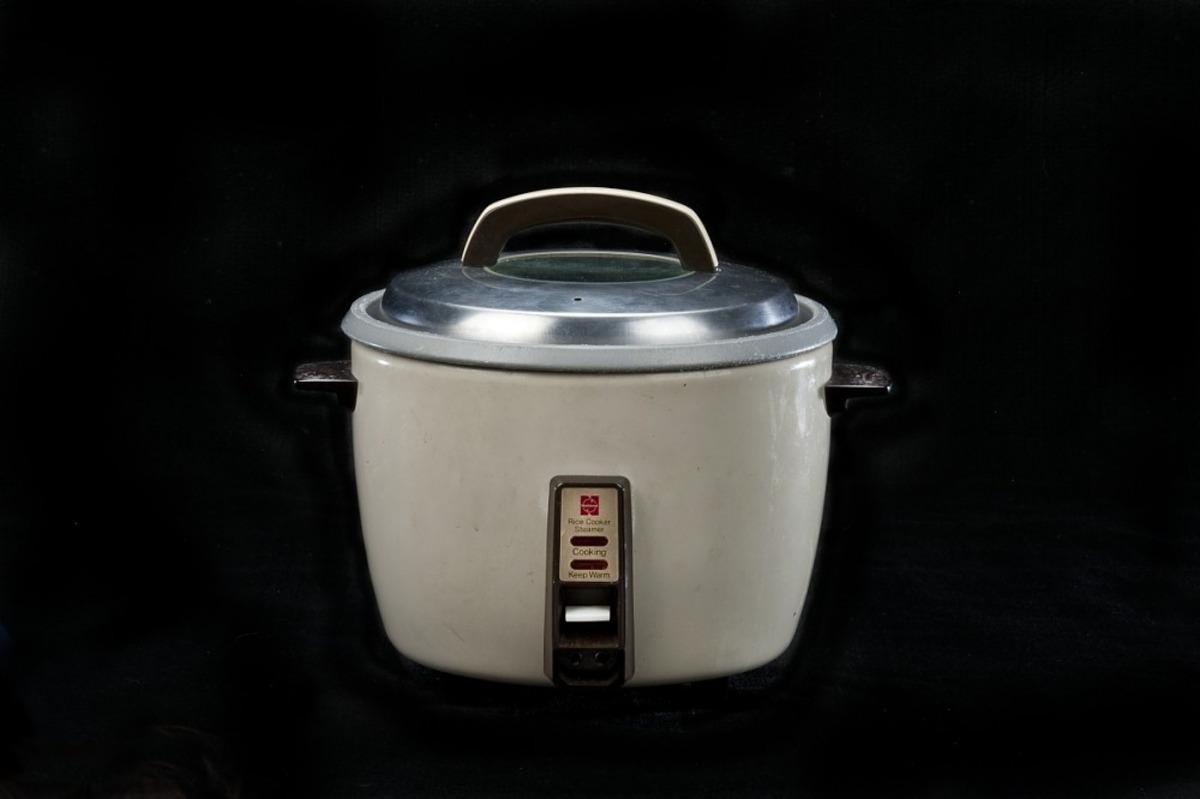
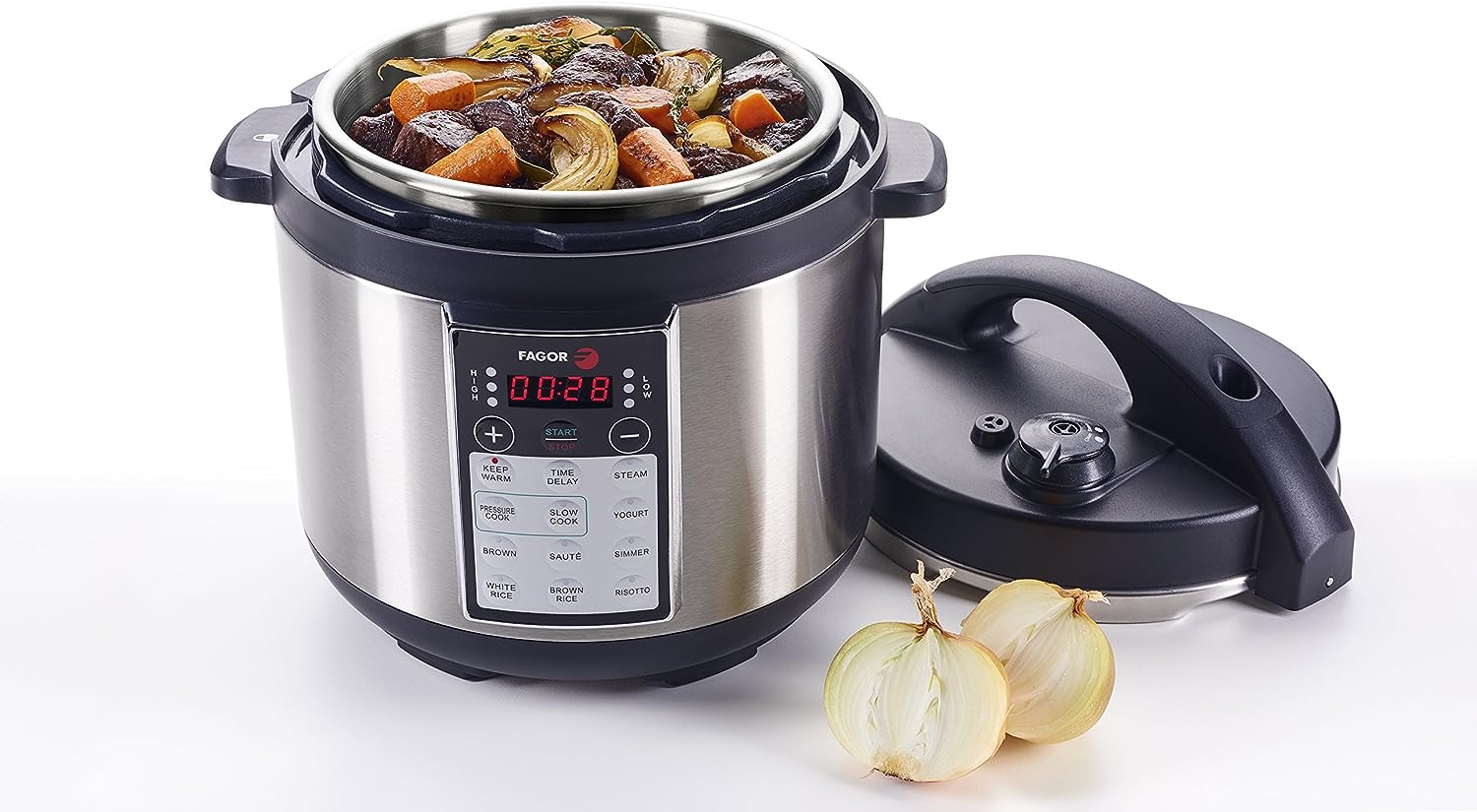
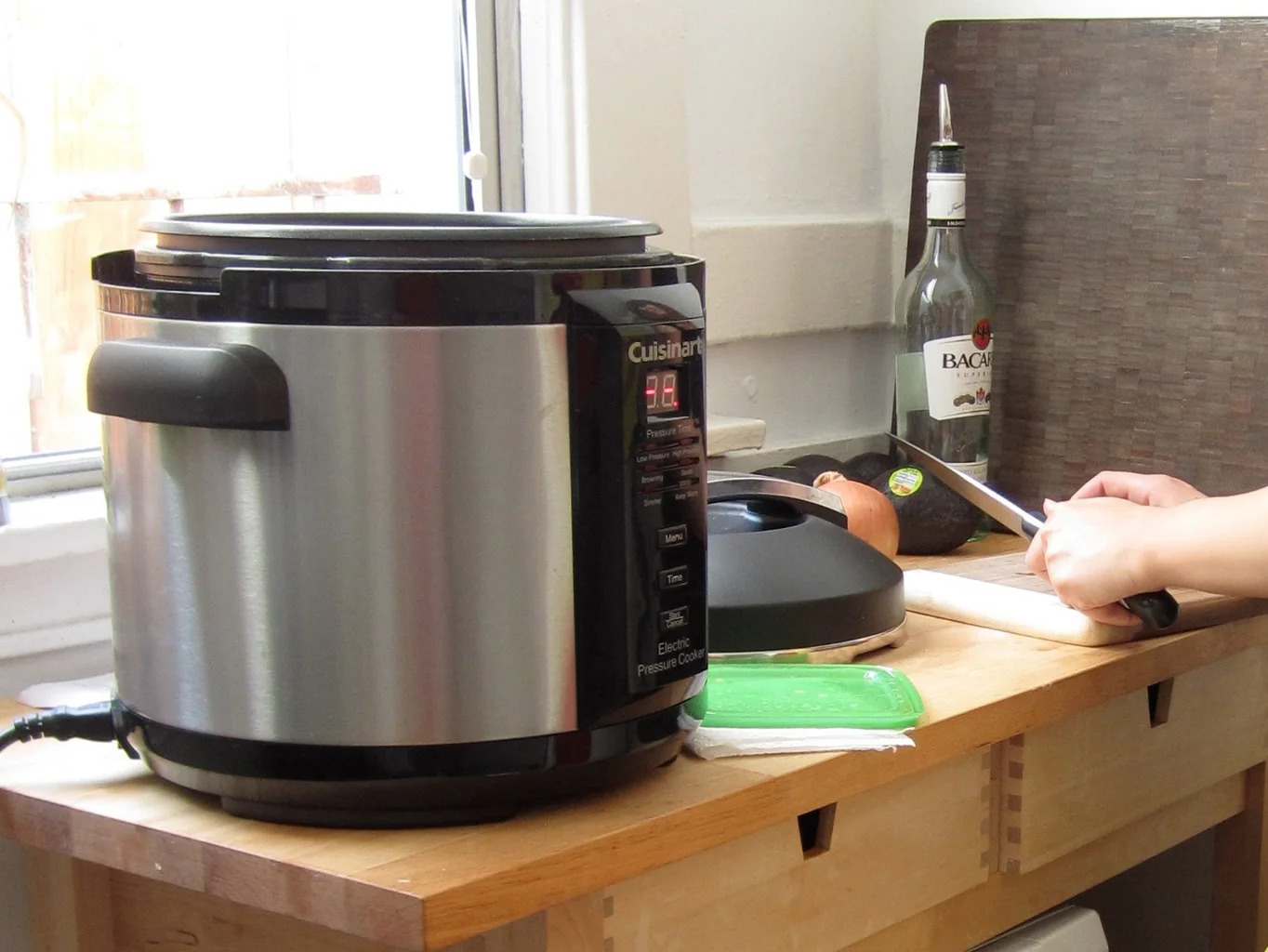

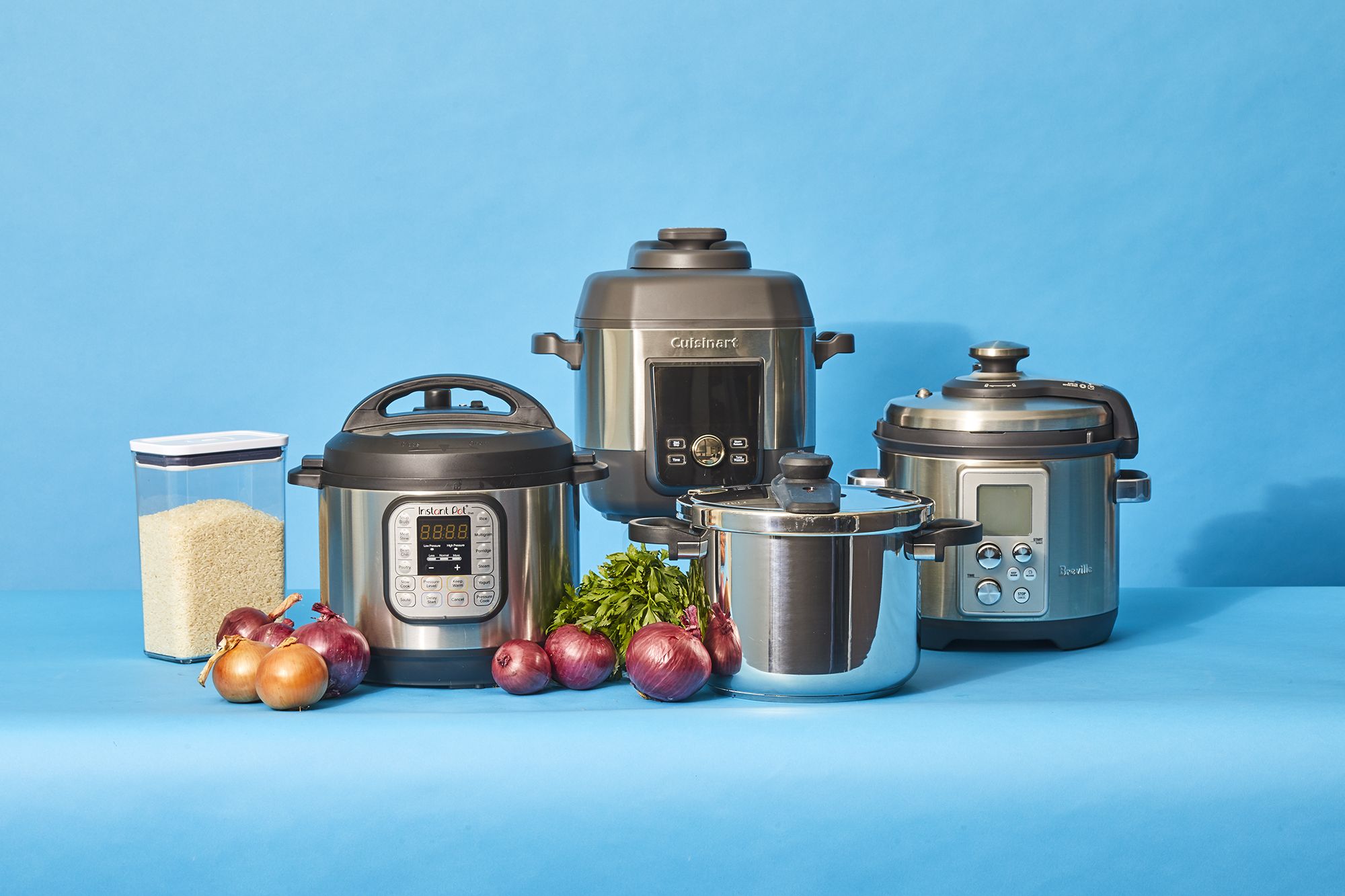
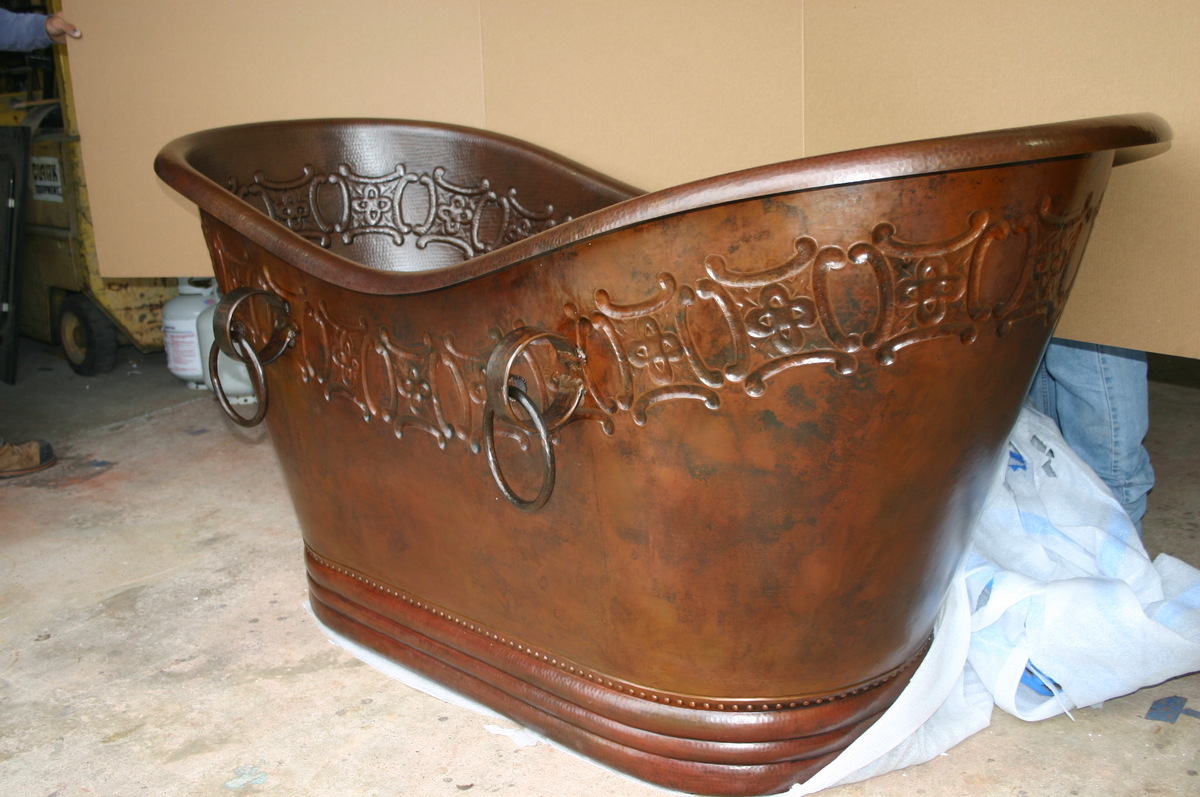
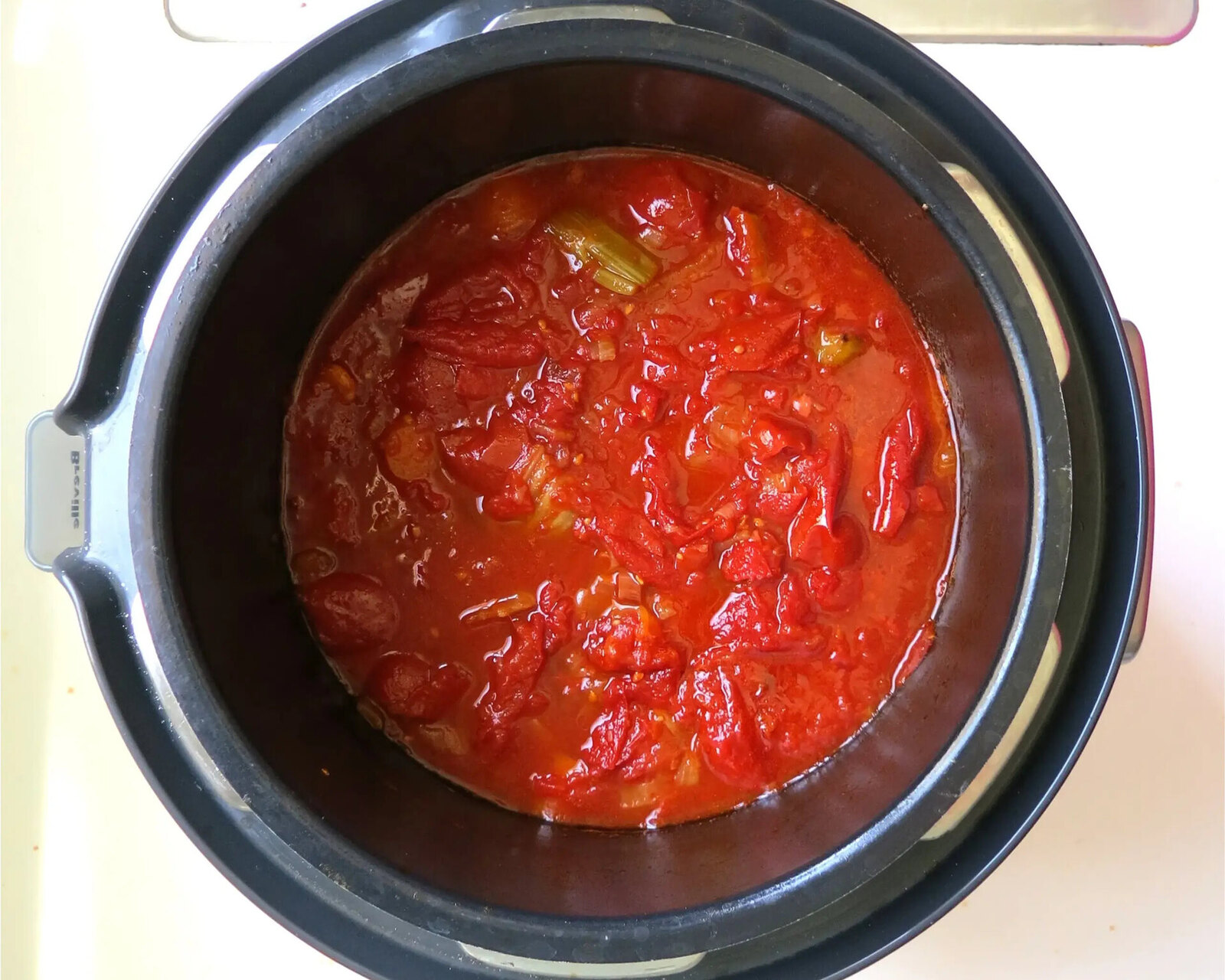
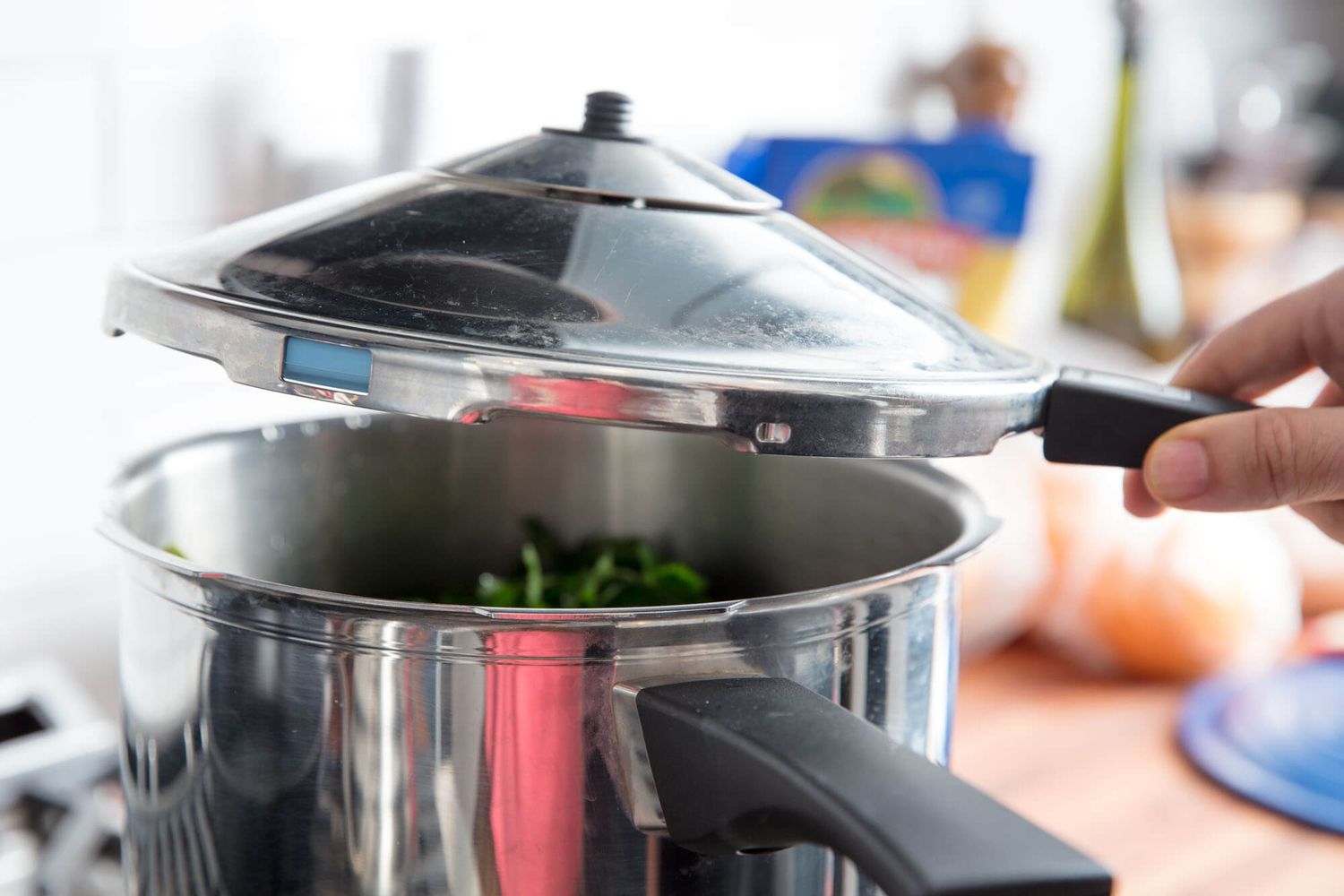
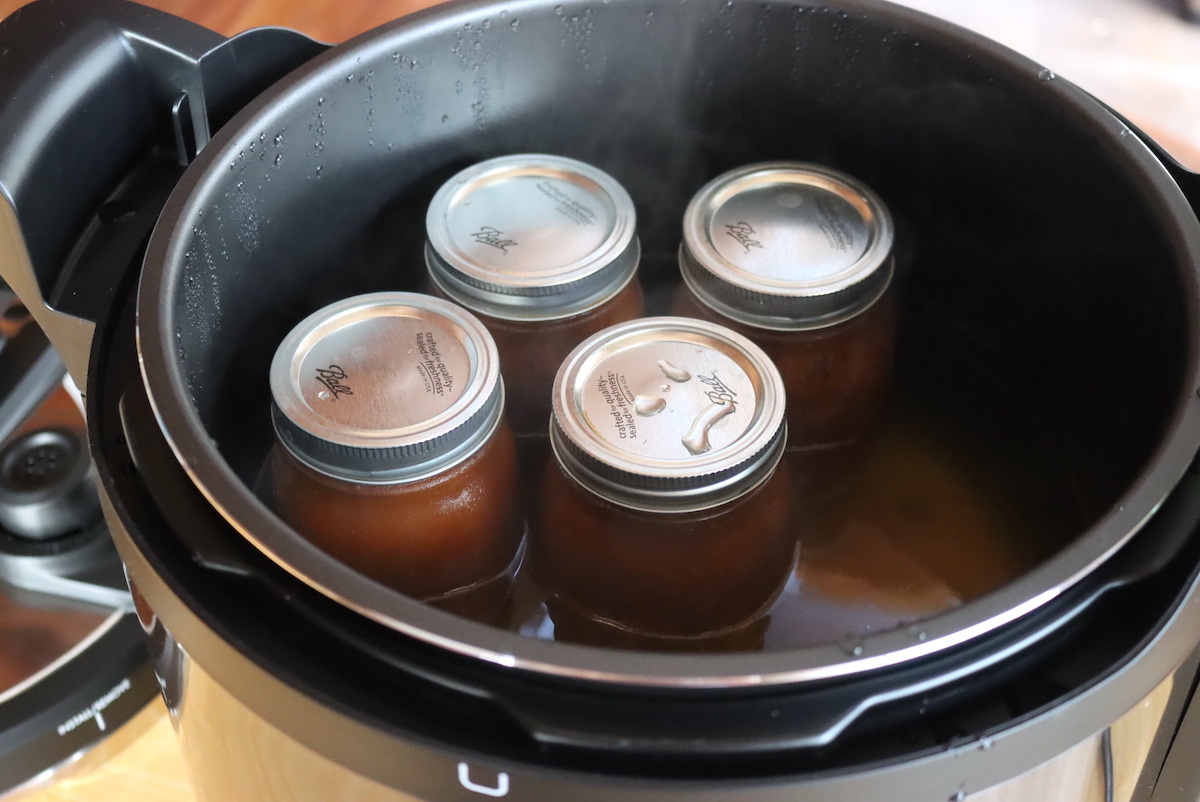
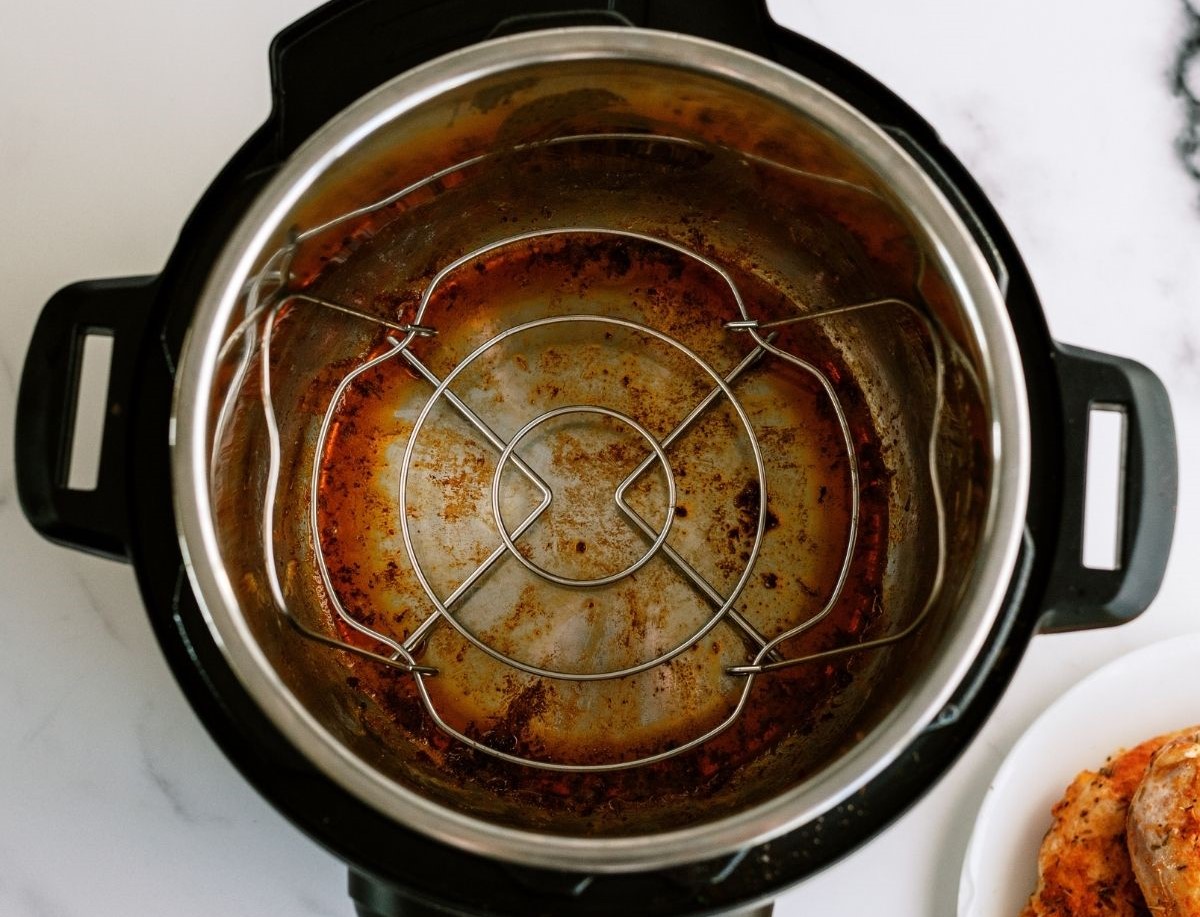
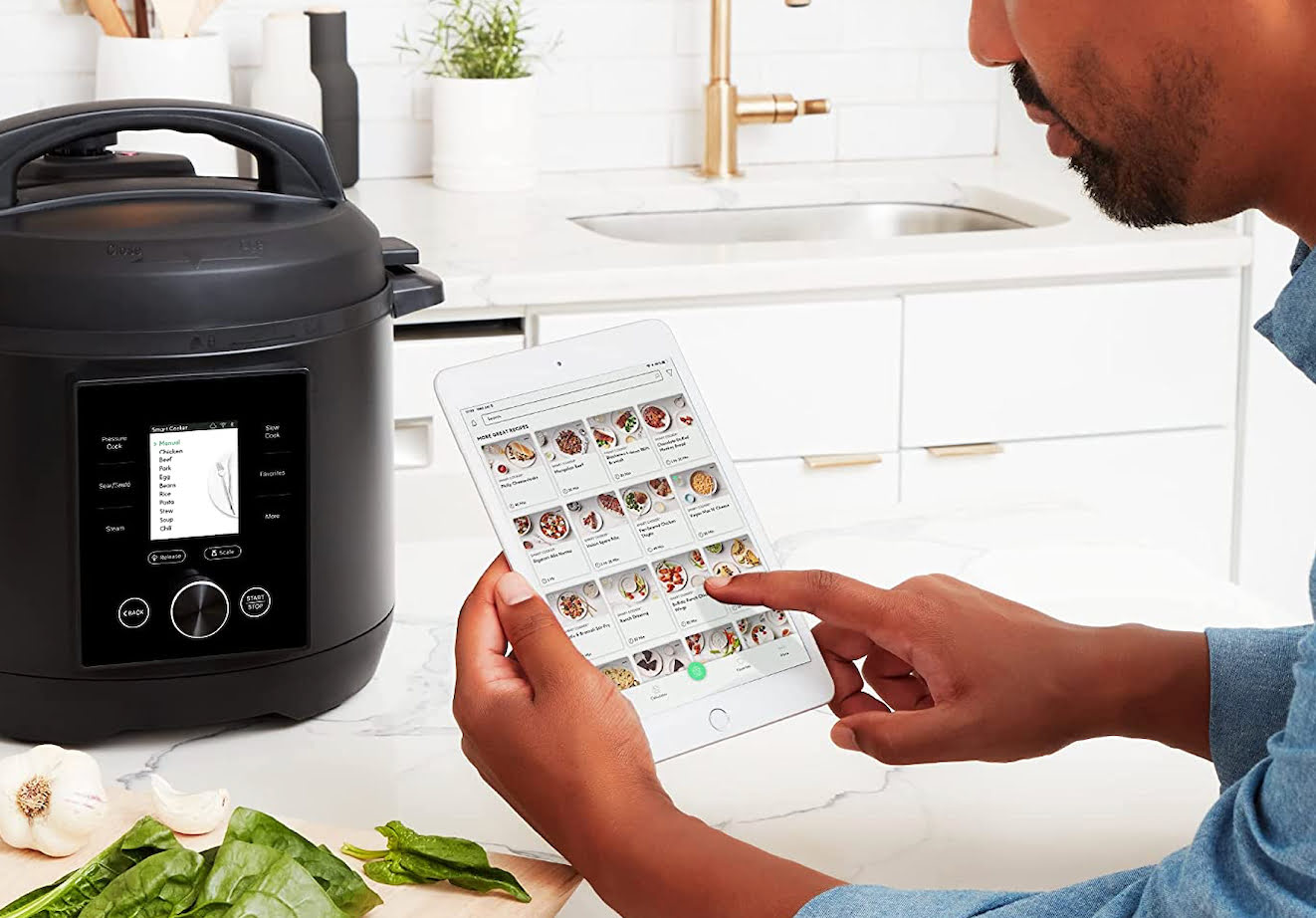
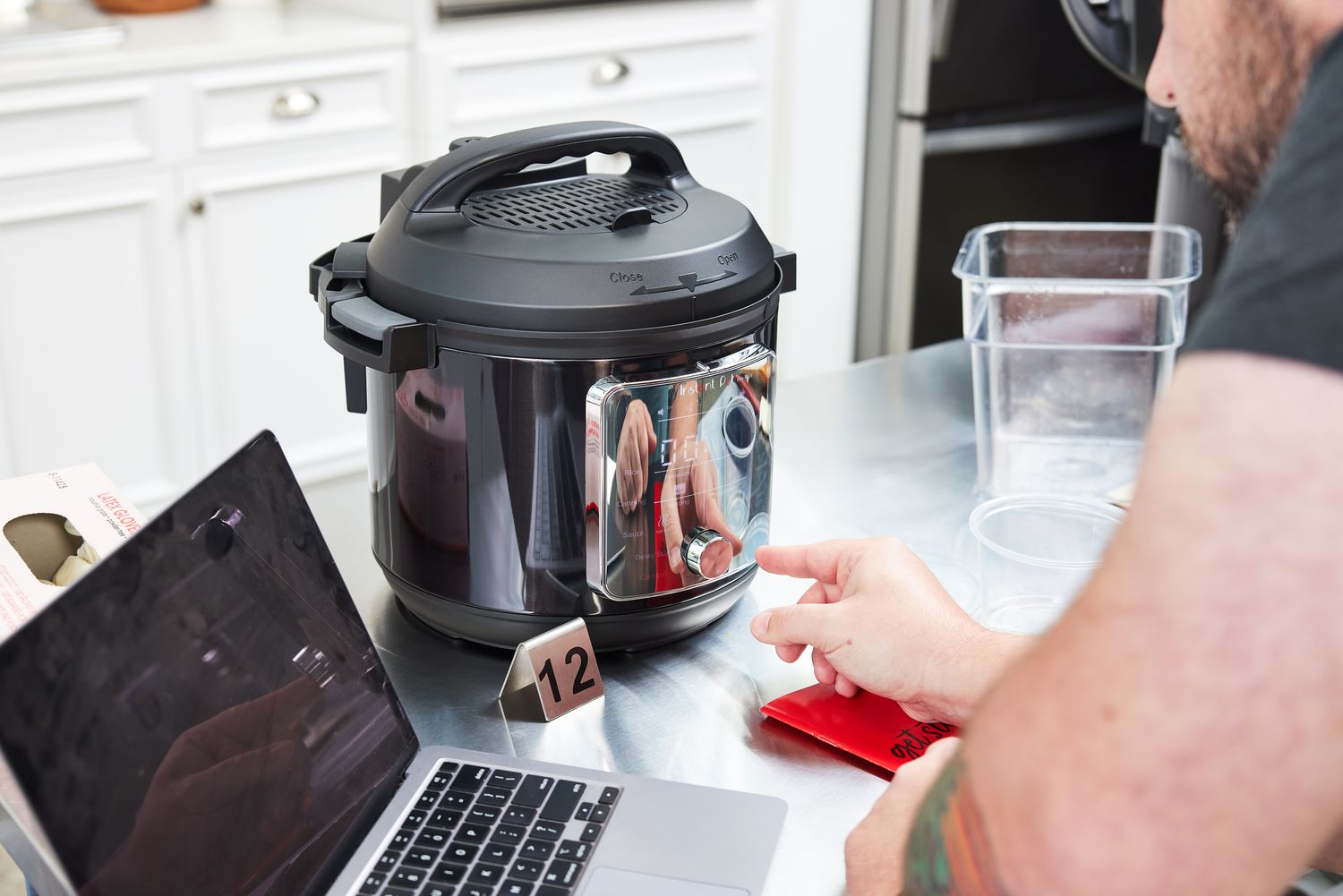

0 thoughts on “When Was The Electric Pressure Cooker Invented”